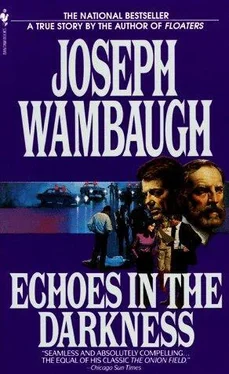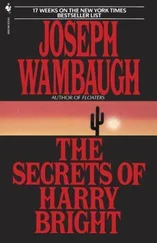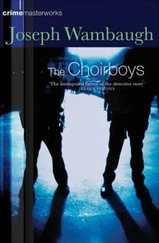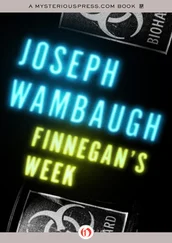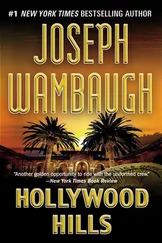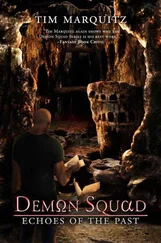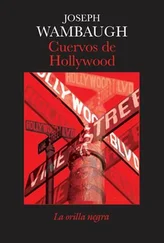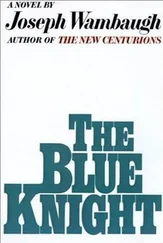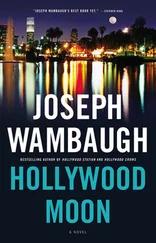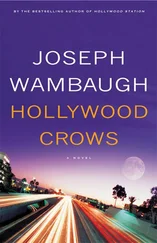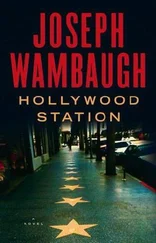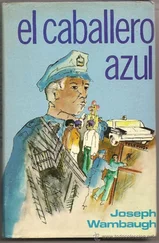Joseph Wambaugh - Echoes in the Darkness
Здесь есть возможность читать онлайн «Joseph Wambaugh - Echoes in the Darkness» весь текст электронной книги совершенно бесплатно (целиком полную версию без сокращений). В некоторых случаях можно слушать аудио, скачать через торрент в формате fb2 и присутствует краткое содержание. Жанр: Полицейский детектив, на английском языке. Описание произведения, (предисловие) а так же отзывы посетителей доступны на портале библиотеки ЛибКат.
- Название:Echoes in the Darkness
- Автор:
- Жанр:
- Год:неизвестен
- ISBN:нет данных
- Рейтинг книги:5 / 5. Голосов: 1
-
Избранное:Добавить в избранное
- Отзывы:
-
Ваша оценка:
- 100
- 1
- 2
- 3
- 4
- 5
Echoes in the Darkness: краткое содержание, описание и аннотация
Предлагаем к чтению аннотацию, описание, краткое содержание или предисловие (зависит от того, что написал сам автор книги «Echoes in the Darkness»). Если вы не нашли необходимую информацию о книге — напишите в комментариях, мы постараемся отыскать её.
Echoes in the Darkness — читать онлайн бесплатно полную книгу (весь текст) целиком
Ниже представлен текст книги, разбитый по страницам. Система сохранения места последней прочитанной страницы, позволяет с удобством читать онлайн бесплатно книгу «Echoes in the Darkness», без необходимости каждый раз заново искать на чём Вы остановились. Поставьте закладку, и сможете в любой момент перейти на страницу, на которой закончили чтение.
Интервал:
Закладка:
“That’s correct.”
“The prison library has a lot of books, doesn’t it?”
“The prison library has very few books, Mister Guida. I had purchased my own books. I had over one hundred and fifty books in my cell including a full encyclopedia set.”
“You, of course, have a Ph.D. in education?”
“I’m a doctor of education.”
“As part of that you did extensive research both in your master’s and your doctoral theses, did you not?”
“Correct.”
“Are you saying that given your educational background, your knowledge of libraries and books, and the places to find information, that the best place for you to get a definition of ‘battered wives’ was in the issues of Penthouse magazine?”
“On those two celebrities. Yes.”
“In other words your dictionary was going to include a list of famous cases, is that right?”
“That’s right.”
“Were you also going to include the Ted Bundy case?”
“Absolutely.”
“How about the Jeffrey MacDonald case from Fatal Vision ?”
“I had those books in my cell.”
“As a matter of fact, you had a lot of books on Ted Bundy.”
“I had three. I consider him to be the first major serial murderer.”
“Also, Fatal Vision . Correct me if I’m wrong. That’s the man who killed his wife and two children?”
“Yes.”
“A woman and two children?”
“No. It was his wife and two children.”
“She’s still a woman, isn’t she?”
“Of course , she’s a woman.”
It was starting to look as though Guida never wanted this case to end-until he sensed that the jury had had enough. He ended abruptly.
Bill Costopoulos said, “Mister Smith, is there anything else that you wish to tell this jury, your peers, before they pass judgment on life or death?”
“The only thing I wanted to mention was that comb ,” Jay Smith said. “I spent twenty-eight years in the army reserves. Twenty-eight years . I spent every Wednesday night for twenty years doing reserve work. I’m the one who originated the idea for the comb.
“We had trouble getting into schools to talk about recruiting because it was very antimilitary back in the sixties. There was a television program called 77 Sunset Strip . On that program there was a fellow who was a detective. He used to comb his hair. They had a song called ‘Kookie, Kookie, Lend Me Your Comb.’ That’s where I got the idea to hand out combs with the 79th USARCOM decal inscribed on it. That comb now works against me.
“I did not kill Susan Reinert. I never had anything to do with Susan Reinert. Nothing whatever. Nothing. Never saw her off school property at any time. Never saw her children.”
“Nevertheless,” said Costopoulos, “you accept the judgment of your jury?”
“Of course. They’re honest people. They made an honest decision. You accept it. That’s the way it goes.”
“No further questions,” said Costopoulos.
“Nothing further,” said Guida.
Jay Smith just gave a little shrug.
“Let’s hear arguments,” said the judge.
Bill Costopoulos had said during the trial that he didn’t even like to think of this eventuality, arguing for a mans life. He said the mere thought filled him with dread.
Only now was it possible to see just how much Bill Costopoulos dreaded this moment. He arose, faced the jury, and said, “May it please the court, Mister Guida, and Jay. Ladies and gentlemen of the jury, I, like Mister Smith, believe that this is the greatest system in the world. I’m not questioning the verdict that you twelve honest people have reached.
“Jay Smith has always maintained to me, as he has to this jury, that he did not murder Susan Reinert. He did not murder those children. I don’t know, but I think you can appreciate the frightening position I’m in …”
It was a stunning moment in the trial. When Bill Costopoulos said the word “frightening” his voice cracked and broke. He was frightened. The tears started to roll down his cheeks and he continued his final argument while swallowing them back.
He said, “The Supreme Court of Pennsylvania has found capital punishment to be legal. Thus, in your deliberation on the question of punishment, you are to presume, if you sentence Jay Smith to death, that he will be executed.
“You are to presume, if you sentence Jay Smith to life imprisonment, that he will spend the rest of his life in prison. You will make no other presumptions.
“The life he will lead in prison is no life at all. For all practical purposes, he began his life term on June twenty-fifth, 1979. Since his arrest for murder in 1985, the man has lived in a hole. He lives by himself. He’s got minimal contact. They transport him in handcuffs and shackles.
“He has elected between the two options of death and that kind of life, to die in our prison system. I’m asking you to let him do that. Thank you.”
It was an effective plea by a passionate lawyer. There were even a couple of reporters brushing at their eyes.
The prosecutor, as always, talked longer than the defense lawyer. He began by saying, “When we picked this jury a month ago, I told you that this day might come, and it’s here.
“When I sat at lunch I think I probably felt exactly the way you’re feeling right now. I’m not standing here to tell you I like the death penalty, or that I want people to die. I don’t think that any one of you feel that way either. The question is not how we feel, but what the law requires. If we liked the death penalty, if we felt that we really wanted people to die, we wouldn’t be at these chairs, we’d be at Mister Smith’s.”
After a long argument in which he described the aggravating circumstance in this terrible murder, he said, “You’ve made a determination. You’ve made a commitment to obey the law. It is now your obligation to do what the general assembly says is proper and what the community says is proper. Sympathy, bias, prejudice should not be part of your decision. For the children, I thank you.”
In actual deliberation time, the jury used only five hours for the guilt verdict, but needed six for the penalty verdict. It was probably a tribute to Bill Costopoulos in his plea for Jay Smith’s life.
After seeing Jay Smith in action, no one could doubt his lawyers decision not to let him testify. Even if there hadn’t been the convictions in the Sears thefts which he would surely deny as he’d denied everything in his life except parking tickets, the man could not have taken the stand.
While his lawyer was being smothered by fear and dread of his awful responsibility, Jay Smith had just shrugged. That’s the way it goes .
No matter how you’d try to package Jay Smith, no matter how placid and scholarly he tried to be, he still danced to his own tune. He’d do his own lonely jig, barely noticing the twelve people who were considering a sentence of death.
At least he’d revealed the music to which he danced on those lonely crags with his little goat feet: “Kookie, Kookie, Lend Me Your Comb.”
Rick Guida had celebrated his thirty-ninth birthday in the last days of the trial. Jack Holtz’s thirty-ninth was coming up in May. These two bachelors were now facing their potential mid-life crises without the work that had consumed them.
Jack Holtz hoped he could return to Troop H and resume investigations. He wondered how he’d be received after so long away.
Rick Guida said he might quit the law and go to Denver and be a bartender.
Lou DeSantis was going home to Philadelphia and just get back to living in a house instead of a hotel.
Читать дальшеИнтервал:
Закладка:
Похожие книги на «Echoes in the Darkness»
Представляем Вашему вниманию похожие книги на «Echoes in the Darkness» списком для выбора. Мы отобрали схожую по названию и смыслу литературу в надежде предоставить читателям больше вариантов отыскать новые, интересные, ещё непрочитанные произведения.
Обсуждение, отзывы о книге «Echoes in the Darkness» и просто собственные мнения читателей. Оставьте ваши комментарии, напишите, что Вы думаете о произведении, его смысле или главных героях. Укажите что конкретно понравилось, а что нет, и почему Вы так считаете.
